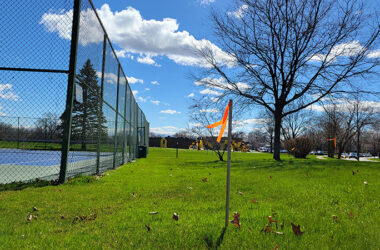On Feb. 26, the Illinois House of Representatives approved a bill that, if signed into law, would ban red light cameras in area non-home rule municipalities, including Homewood.
Homewood officials are not pleased with House Bill 322, arguing that it unfairly targets non-home rule municipalities and penalizes good actors for the behavior of bad actors.
Red light camera systems, which monitor intersections and help law enforcement agencies hold motorists accountable for running red lights, have long been controversial. They are seen by some as a useful public safety tool and by others as a way for local governments to raise money.
Recently, the systems have been implicated in corruption cases, including the federal investigation that brought down state Sen. Martin Sandoval, D-Cicero, who pleaded guilty earlier this year to accepting bribes from SafeSpeed, a red light camera provider. According to a Chicago Tribune report, Sandoval admitted to blocking legislation that would have hurt the red light camera business. He resigned from the legislature Jan. 1.
Homewood has five red light cameras operating at four intersections. There are two cameras at 183rd Street and Governors Highway, one monitoring eastbound traffic and one watching northbound traffic, according to Village Manager Jim Marino.
The other cameras are at northbound Halsted and 175th streets, southbound Halsted and Ridge Road and southbound Halsted and 183rd.
Homewood contracts with Gatso, not SafeSpeed, for red light camera operations.
Homewood officials argue that the village’s practice has aligned with the public safety purpose of red light cameras. In a Feb. 12 letter to the seven state representatives and senators who represent Hom, Mayor Richard Hofeld said HB 322 was unfairly targeting a village that is using the cameras properly.
“Why would this apply to only non-home rule and not home rule communities? We have not aggressively enforced our red light cameras because the purpose is not to generate revenue,” he said. “Potential violations are reviewed twice before a citation is issued, once by Gatso and again by our police chief. Only obvious violators are issued a citation.”
He noted the cameras detect about 200 traffic violations per month.
“These are all legitimate and obvious violations, not questionable ones,” he wrote. “This high number of violations is an indication that these intersections can still be unsafe and the continued use of red light cameras is needed.”
He said the cameras have improved safety at heavily trafficked intersections, reducing the number of accidents.
While revenue is not the main point, Hofeld said the approximately $100,000 per year from traffic violations caught by the cameras has been used to help the village increase public safety staff. Homewood recently added four new police officers and three new firefighters.
Sen. Patrick Joyce (D-Essex) said Wednesday that he called Hofeld to talk about the issue and agrees that the provision of the bill targeting non-home rule municipalities is a problem.
“I’m more opposed to the language than actual concept of it,” he said, noting that he sees validity in both pro and con arguments regarding red light cameras. “It unfairly discriminates against small communities.”
He said if HB 322 reaches the state Senate for a vote as-is, he is leaning toward opposing it.
None of Homewood’s representatives voted in favor of HB 322. Will Davis (D-Homewood) voted no. Debbie Meyers-Martin (D-Olympia Fields) and Anthony DeLuca (D-Chicago Heights) did not cast votes. Thaddeus Jones (D-Calumet City) voted present.
Joyce could have another red light camera bill to consider soon. State Sen. Mattie Hunter (D-Chicago) introduced Senate Bill 2902, which would be a comprehensive ban on red light cameras at intersections and would affect both home rule and non-home rule municipalities.
“It’s clear that the red-light camera program has been sustained and expanded by corruption,” Hunter said in a news release. “Traffic laws should be driven by safety, not bribery, shakedowns or the need to boost revenue. An industry that benefited from foul-play shouldn’t be able to continue to siphon money from the pockets of motorists.”
Joyce said he has not had a chance to read SB 2902 and will make a decision on whether to support it after giving it some study.
The Chronicle sought comment from Sen. Michael Hastings and Sen. Napoleon Harris, but neither has responded yet.


